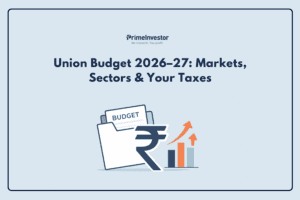With inputs from Bipin Ramachandran.
If you’re looking to choose a health insurance plan, the most important metric to look at is the insurer’s track record on paying claims. Indian health insurers tend to be slippery as eels when it comes to settling your bills.
The industry receives lakhs of customer complaints every year on rejected, repudiated and partly disallowed claims. We’ve discussed some reasons health insurers may reject claims earlier.
But how can you gauge a health insurer’s claims record? The data to make this assessment is not easy to find, as health insurers keep their claims numbers a closely guarded secret. IRDA, which used to compile this data in its annual reports until three years ago, has taken to blanking it out too.

At PrimeInvestor, we assign a high weight to an insurer’s claims settlement record in the Prime Health Insurance recommendations. Every year, we manually compile claims data from each individual insurer’s statutory disclosures.
We decided to publish this exclusive, hard-to-find data for your ready reference. We also explain how you should interpret it!
How they stack up
The table below ranks general and standalone health insurance companies based on their claims settlement ratios for FY24. FY23 numbers are also presented so you can evaluate consistency.
Here’s what the three ratios mean.
- Claims settlement by number: This is the number of claims that the insurer has paid in the financial year compared to the total number of claims it received and carried forward from the previous year.
- Claims settlement by value: This is the rupee value of claims paid by the insurer compared to the rupee value of the claims it received and carried forward from the previous year.
- Claims efficiency ratio: Of the claims that the insurer has paid, how many were paid within 3 months? This is captured in the claims settlement efficiency ratio.
How to read them
Health insurance buyers are often confused about what metric to look at when evaluating if a health insurer will keep its promise. So here are some tips on how you should read the above data.
Rejection vs repudiation:
When you file a claim with a health insurance company, it does not always admit it for further processing. Insurers ‘reject’ a fair number of claims soon after receiving them, for incomplete documentation, data errors, incorrect entries and so on. The official data on claims settlement provided by insurers does not capture the claims that are not admitted at all, due to deficiencies in paperwork. They only capture the claims that are declined after being admitted - this is called repudiation.
For instance, say an insurer received 1000 claims, rejected 200 for clerical errors and settled 600 of those claims within the year. Its claim settlement ratio will be 75% (600/800) and not 60% (600/1000). The claims settlement ratio is thus likely to be overstating the probability of your bill being paid by the insurer.
ICR is irrelevant:
Recently, the health insurance industry has been promoting the Incurred Claims Ratio or ICR, as the number that policyholders must check before signing up for a health plan. This is a diversionary tactic.
ICR measures the claims paid out by the insurer as a proportion of the premiums it has collected in a specific period. ICR tells you whether the insurer paid out more money in a particular period than the premiums it collected. During Covid for instance, most health insurers had ICRs above 100% because they were paying out more claims than premiums collected. Post-Covid, their ICRs have dropped below 90%.
The ICR is a rough gauge of an insurer’s profitability, not claims record. An investor may like to buy shares of an insurance company with a low ICR. But the ICR is of little value to the health policy buyer - who should be focussing on whether the insurer is in the habit of settling claims. In fact, an insurer with low ICR should be a red flag to policy buyers, because it shows the insurer loves to rake in premiums while economising on paying claims.
Claims by value:
Many folks choose their health insurance plan based on the claims settlement ratio (CSR) by number. They assume that if an insurer has a 90% CSR by number, they have a 9 in 10 chance of getting their bills reimbursed. But this is very misleading because insurers very often settle only part of the claim you file with them. It is routine practise for insurers to disallow some items of expenses from your hospital bill – the cost of consumables, room and other associated charges beyond policy sub-limits etc.
This is where CSR by value comes in. The data we shared above shows you that many insurers manage a CSR by number ratio above 90%, but only a few manage a CSR by value ratio that is above 90%. In FY24, 14 of 27 insurers had a CSR ratio of over 90% by number, but only 7 of 27 insurers had a CSR of over 90% by value, showing that they settled a large proportion of the bills admitted by them.
This is why CSR by value is the key metric to look at while choosing a health insurer. It helps you weed out insurers who settle your claim on paper but leave a large part of your hospital bills uncovered.
PSU versus private insurers
The conventional wisdom on health insurance is that PSU insurers are not a good choice because they impose sub-limits on your room and treatment charges, and have co-payment clauses that result in only partial settlement of your bills. Private health insurers on the other hand, have no sub-limits on rooms, diseases or co-payment clauses.
But the data on CSR shows that PSU insurers score very high on the CSR by value ratio, with all of them settling over 95% of claims by value. The gaps between their CSR ratios by value and number are also not very large.
This indicates that PSU insurers offer greater certainty of claims payment, by settling most of the claims that they admit after enforcing sub-limits, co-payment clauses etc. Private insurers, on the other hand, seem to be compensating for their no sub-limit and co-payment clauses through poorer CSRs by value.
This goes to show that if you’re buying a health insurance policy, you can’t go wholly by product features such as no co-payment, no sub-limits etc. Product features need to be evaluated along with the insurer’s willingness to fully pay claims.
This is why we give PSU insurers equal consideration in our product rankings and consideration. We have a mix of products from both private and PSU insurers in our health insurance recommendations.
Note: The claim ratios are calculated from public disclosures of individual insurers. In case there is an error in calculation using claim settlement values, claim repudiation values are used to indirectly calculate claim settlement ratios.







40 thoughts on “Health insurance: Who is best at claims settlement?”
What’s your take on health insurance with a small base sum and super top-up for a family of three(39,34,3 yrs of age)? What’s your recommendation?
Hello,
The following are the parameters we consider while looking for a health insurance policy:
Be sure to declare all medical history. If you find it hard to assess policies, consider working with an insurance agent — they can also assist during the claims process.
You may refer to our Articles > Insurance section to see the policies we’ve analyzed along these lines. However, please note that we do not cover all policies in the market.
Thanks.
Hi, Thanks for this Article. I have a CARE health insurance which I took in march of 2023 and paid for 2 years upfront as they were providing a deal at that time. The Base SI is 10L and now I got a renewal note with Cumulative Bonus as another of 10L. I am thinking of moving to HDFC Ergo now, Should I opt for a new policy or should I ask for Porting as my waiting period is going to be over now with CARE. Can you please create an article on Porting of insurance?
Hello,
We recommend checking whether you can port your policy to retain completed waiting periods. Contact HDFC Ergo before renewal to confirm feasibility. We’ve published an article on health insurance porting—refer to it for more details: The pros and cons of porting a health policy – PrimeInvestor.
Thanks
Yet another great article from Aarthi. I’m just curious to know whether Super Top Up policy provide cash less claims and I do have a seperate health insurance from Niva Buba(Reassure 2.0) for my self for an base sum insured for 10 lakh, will our insurer alow us to reduce base sum insured to say 5 lakhs?
Thanks. Yes super topups provide cashless claims. You can request your insurer to reduce base cover on renewal.
Thank you
Thanks Arti – as always, useful article.
My two queries:
Firstly, Is there a separate statistic on CSR for Top Up policies?
Secondly, are there more details on grievance resolution. I presume that people whose claims get rejected, raise grievance. Given IRDA is overseeing the performance, am sure there is some degree of review. If claims are incorrectly rejected, then Insurance company will be hauled up. Hence, net net, claims must be settled if they are legitimate.
Any thoughts?
CSR stats are only available insurer wise. So unfortunately, no stats on top-ups separately. IRDA does compile industry data on grievances which are splintered across insurers, a centralised portal and the insurance ombudsman. We are trying to compile this data as an additional input into our recos. So your idea on tracking grievances is spot on!!
Very informative article. Thank you so much. I do not find ICICI Pru data here. Was it not made available? Regards
We do have ICICI data in the table…look for ICICI Lombard. – thanks, Bhavana
Comments are closed.